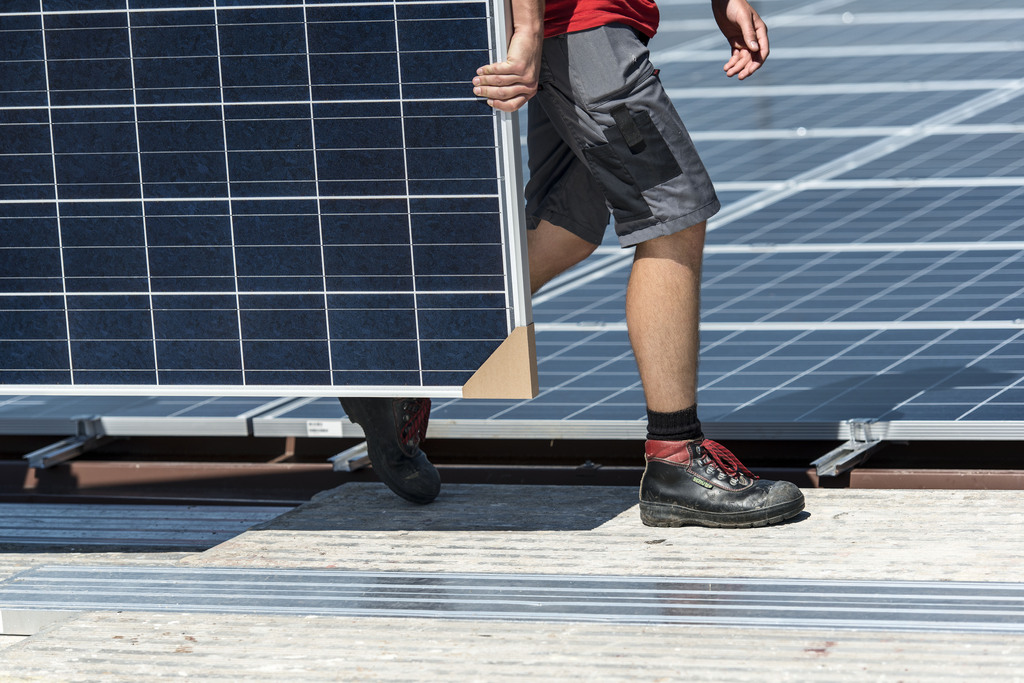Solar energy plants suffering from heatstroke

Switzerland’s solar energy reserves are paradoxically suffering from the recent sunny weather, with the heat affecting photovoltaic plants. As a result, power generation has decreased slightly.
Although photovoltaic plants depend on a lot of sun, heat can impair energy production, according to Patrick Schaub, an energy analyst from SIG, a utility provider for canton Geneva.
“The cells’ efficiency depends on the temperature,” he explained. “The higher this climbs, the lower the efficiency. With temperatures in recent days seven or eight degrees above the seasonal average, the production of solar energy in canton Geneva has dropped by about 8%.”
The heatwave, which has so far lasted ten days, could reduce SIG’s annual energy production of 27 gigawatt hours by around 0.4%, Schaub said.
Geneva saw the mercury rise to 37.1 degrees Celsius on Saturday and temperatures are set to exceed 30 degrees in many parts of the country this week. People in the capital Bern are bracing themselves for 37 degrees Celsius on Tuesday.
Solar panels
Schaub added that in addition to overheated photovoltaic cells, mist in the atmosphere was also causing problems. While the air gets dry at the beginning of a heatwave, evaporation tends to increase in the days that follow, reducing solar radiation. The ideal weather conditions for solar energy are therefore a sunny spring or autumn.
The same problem affects solar panels, which unlike photovoltaics are used not to generate energy but to heat water. These panels also overheat during hot periods.
Solar power provides 1% of Switzerland’s electricity needs. The country was a pioneer in photovoltaic technology 30 years ago, but it has since been overtaken by a number of other European countries in terms of production of solar power. In Germany, per capita production is more than 15 times the Swiss figure, and in the Czech Republic it is four times more.

In compliance with the JTI standards
More: SWI swissinfo.ch certified by the Journalism Trust Initiative


You can find an overview of ongoing debates with our journalists here. Please join us!
If you want to start a conversation about a topic raised in this article or want to report factual errors, email us at english@swissinfo.ch.